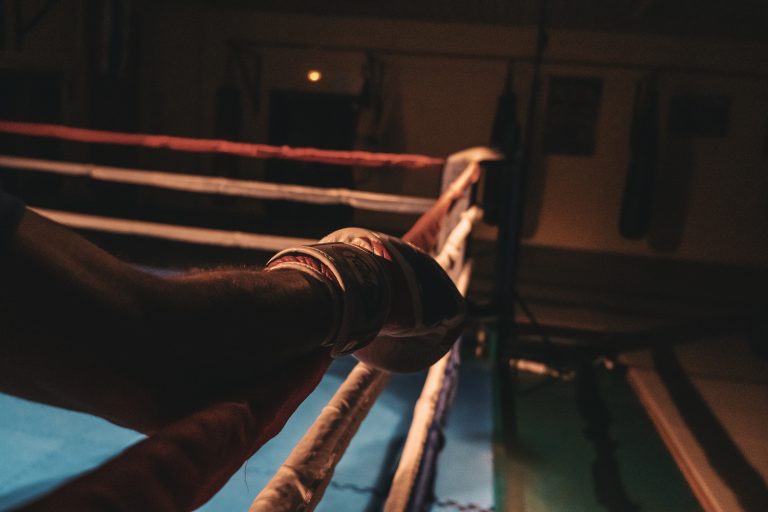Karate – How does it affect mental health?
Karate is a martial art that originated from Japan and it has been popularized throughout the world. Beyond being a physical activity, Karate is also known to offer several benefits for mental health. This article aims to explore the relationship between Karate and mental health.
Physical Activity – Reducing Stress and Anxiety
Karate offers a complete workout routine that involves both aerobic and anaerobic activities. Through regular practice, Karate helps to regulate the body’s physiology that leads to the release of endorphins, a natural hormone that helps to reduce stress and anxiety. Also, the physical exertion involved helps to tire out the body and allows one to have a restful sleep, which is important in combating depression.
Discipline – Leading to Strong Mental Health
Karate is a disciplined martial art form that requires dedication and training. The discipline involved in Karate has a lot of carryovers into everyday life, including the ability to stay focused, set goals, and avoid distraction. Developing this level of discipline in Karate has a lot of mental benefits that leads to a better and more fulfilled life.
Self-Confidence – Increased Mental Strength
Karate, like every other martial arts form, teaches one to be respectful and to carry themselves with confidence. With regular practice, individuals develop the self-confidence necessary to face life challenges. As self-confidence grows, one’s overall mental strength increases, and one becomes better equipped to handle challenging situations.
Mind-Body Connection – Creating A Sense of Balance
Karate works to develop a strong connection between the mind and the body. By being deliberate in combining physical exercise with mental discipline, Karate helps to integrate the mind and the body, creating a sense of balance. This connection also helps to sharpen mental clarity and focus on self-awareness.
In conclusion, Karate is an excellent means of improving mental health. From reducing stress and anxiety to developing discipline, increasing self-confidence and creating balance, Karate offers a lot of benefits for individuals looking to improve their mental health. So next time you’re feeling stressed or anxious, consider trying out Karate as a way to boost your mental health.
The Benefits of Karate on Mental Health
Karate, a martial art originating from Japan, is a widely popular form of exercise and self-defense. However, it is more than just punching and kicking. Karate has numerous mental health benefits too. It can help people relieve stress, boost their self-esteem, self-awareness, confidence, and sharpen their focus. In this blog post, we will look at some of the most frequently asked questions about how karate affects mental health.
What is karate?
Karate is a type of martial art that involves various techniques such as punches, kicks, blocks, and strikes. The practice of karate requires significant focus and discipline, which help practitioners develop self-control in various areas of their lives. The word „karate“ means „empty hand“ as it does not involve the use of any weapons.
How does karate benefit mental health?
Karate offers numerous benefits for mental health. Some of the benefits include:
Stress Reduction
One of the primary benefits of karate is its ability to relieve stress. The practice of karate requires a great deal of focus and discipline, which can take individuals away from their daily worries and stressors, promoting relaxation and reducing anxiety.
Improved Confidence and Self-Esteem
Physical exercise and self-defense training can significantly increase an individual’s self-esteem and confidence. This is particularly true when they achieve goals or milestones in their karate practice, such as receiving a new belt.
Better Focus and Concentration
Karate requires a high degree of focus, which can help individuals develop better concentration skills. A trained mind can help individuals focus better on the task at hand and remain calm even in stressful situations.
Increase in Self-awareness and Self-Control
The mindfulness practiced through karate training helps individuals develop self-awareness and self-control. Through karate, people learn to recognize their emotions and impulses, which enables them to regulate their behavior better.
Can practicing karate improve mental health for individuals with mental health issues?
Yes, practicing karate can significantly benefit individuals with various mental health issues. Karate practices such as kata, meditation, and deep breathing exercises can help individuals with anxiety and depression by reducing the symptoms.
Is karate suitable for people of all ages and physical abilities?
Karate is a martial art suitable for individuals of all ages and physical abilities. Karate training schools and instructors tailor programs to accommodate everyone, depending on their fitness level, age, and overall health. However, it is always essential to consult with a physician before starting any new physical activities.
How often should you practice karate to see mental health benefits?
To achieve significant mental health benefits, you should practice karate consistently. Aim for at least three training sessions per week, and gradually increase the training time when you feel comfortable. Consistent practice is essential to develop muscle memory and muscle strength.
Conclusion
Practicing karate offers numerous mental health benefits, including reduced stress levels, improved confidence and self-esteem, increased focus and concentration, and better self-awareness and self-control. The key to receiving these benefits is consistent practice and open-mindedness.
Karate provides individuals with means to strengthen both their bodies and minds, giving them the ability to tackle various challenges in their lives. If you’re looking for a new form of exercise and want to improve your mental well-being, consider trying karate.
Inhaltsverzeichnis






